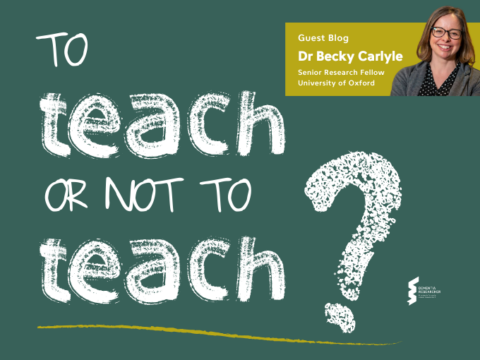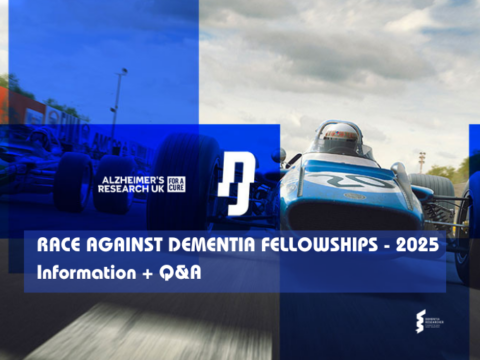In a world before COVID, on the hottest day of the year, Dr Christy Hung, Dr Cara Croft and I sat waiting in an immaculate study. A butterfly gently fluttered against the window- the sound of its tiny wings hitting the glass just audible in the nervous silence. Today, after months of grant writing, interviews and anxious waits- we would finally get the news that we would be the first cohort of Race Against Dementia fellows.
“Let’s get that window open for that poor wee beastie!”.
Sir Jackie Stewart, strides into the room and instantly clocks the trapped butterfly, his famous attention to detail becoming immediately apparent. An icon of formula one and a Scottish national treasure, Sir Jackie is now embarking on his latest challenge; defeating dementia. He warmly greets us all and immediately sets out his vision.
Sir Jackie established Race Against Dementia with a clear ethos; to change the way we work in dementia research. Taking inspiration from his experience in formula one, RAD seeks to accelerate research progress through global, interdisciplinary collaborations and out of the box thinking. By offering Early Career Researchers 5 years of funding instead of 3, they give their fellows space to really dig into key scientific questions, without the ticking clock of the next grant deadline.
I am now one year into this fantastic scheme and I can honestly say it has been life changing. Having completed my PhD and first postdoc at the University of Cambridge, I moved to the University of Edinburgh to work alongside Prof. Tara Spires-Jones. I have developed key collaborations with academics in Germany and the US as well as with pharmaceutical companies and drug discovery institutes. I have also expanded my scientific skillset, working with human tissue for the first time through collaborations with local clinicians. Using both mouse and human organotypic brain slice cultures, I am seeking to explore why we lose synapses in Alzheimer’s disease and frontotemporal dementia. I am particularly interested in the normal role of tau protein and how this interacts with microglia. Whilst tau can become toxic in Alzheimer’s disease, the processes that cause it to aggregate inside nerve cells may also disrupt key physiological functions of this protein. I hope to establish which aspects of synapse damage are caused by toxic gain of function versus loss of function of tau, with the aim of identifying safe methods for therapeutically targeting tau.
As well as being able to focus on some really exciting science, RAD have offered a plethora of personal development opportunities, including leadership training, public speaking coaching and visits to formula one facilities. We have also presented our work to their fantastic board of Trustees and I have had the pleasure with working with teams from Dyson, through links with the James Dyson Foundation, who sponsor my particular fellowship.
This fellowship is a unique, once in a lifetime opportunity. I really encourage any early career dementia researchers to look at RAD to support the next stage of their career. I very much look forward to seeing our team of fellows grow further and the work we can achieve as a group.
Author

Dr Claire Durrant
Dr Claire Durrant having completed her undergrad, PhD and postdoc at the University of Cambridge. Claire made the move up to Scotland in 2019 to start her Race Against Dementia Fellowship. Providing an opportunity to kick-start her independent career, Using both mouse and human organotypic brain slice cultures, Claire is exploring why we lose synapses in Alzheimer’s disease and frontotemporal dementia. When am not in the lab, Claire loves to travel, hike and spend time with her husband and two very fluffy cats.

 Print This Post
Print This Post





